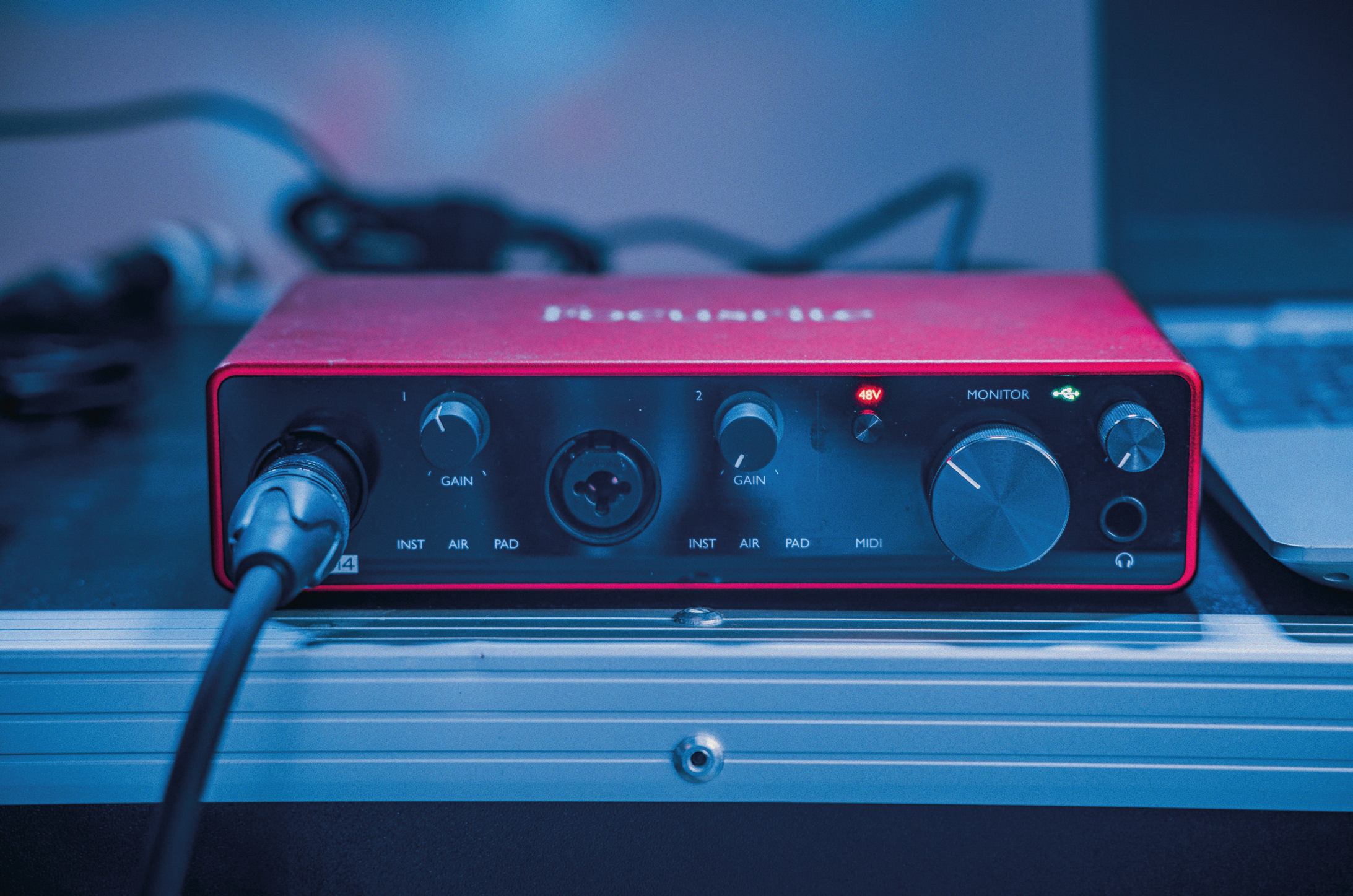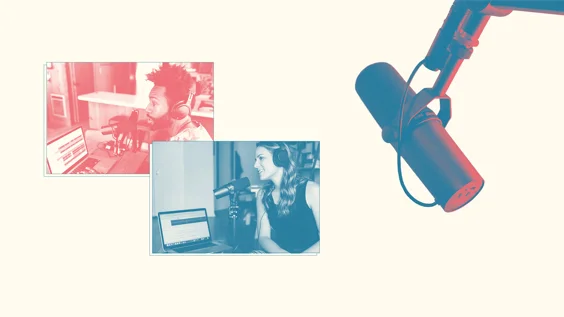On this page
The below rates are not part of a collectively bargained agreement or “Equity Contract”. In lieu of a major collective agreement setting a precedent in the industry for rates of pay, Equity’s audio committee have put together these recommended minimum rates for artists recording audiobooks. These rates were put together based on a survey of Equity members, assessing the current market rates, as well as data on what various major audiobook producers pay.
These are recommended or suggested minimums to be negotiated around, and are not intended to dictate a set rate. Artists and agents are free to negotiate and should endeavour to accept rates higher than these where possible.

In studio recordings: Recommended minimum rates
“In studio” means recorded in a studio owned or hired by the producers, i.e. not in an artist’s own remote studio. Equity recommends a day rate as the preferred means of payment for in-studio audiobook recordings. Alternatively, narrators can be paid per finished hour (PFH) of audio.
| In studio recordings minimum | |
| Day rate | £500 minimum for a 7 hour booking (with breaks as outlined below) |
| Half-day rate | £300 minimum for a 3 hour booking |
| Per finished hour (PFH) rate | £130 per finished hour |
| Pick-ups session rate | £130 per recording hour in studio, minimum one hour |
Remote studio recordings: Recommended minimum rates
The minimum per finished hour rate is higher than the ‘in-studio’ PFH to compensate the narrator for the use of their remote studio and for the delivery of the audio files to the publisher or producer.
| Remote studio recordings minimum | ||
| Per finished hour (PFH) rate | £150 |
This minimum rate covers the recording and delivery of mistake-free audio files. The narrator is asked to erase any reading errors, stumbles or ‘fluffs’ but does no further editing. Any additional editing (taking out of breaths or pauses, mastering the audio, etc) should be invoiced as additional work as per rate below. |
| Editing per finished out (PFH) rate | £65 | |
Increased rates
- Books that contain 20% or more (of the book) jargon/technical terms:10% increase to half-day and day rate.
- For multi-voice narrations:10% increase to half-day and day rate and 20% increase to PFH rate for multi-voice (this is to account for the extended preparation time when reading chapters that the narrator will not be narrating themselves, but that they still need to be acquainted with).

Best practice for audiobook engagers
- Samples/demos requested by way of audition should be no more than 5 minutes in length, with a minimum turnaround time of two working days.
- Preparatory scripts to be delivered to the narrators 2 weeks prior to scheduled recording start date.
- Engager to provide the narrator with information about any problematic content / potentially distressing scenes / profanity / explicit content at the enquiry stage.
- Narrator to conduct their own research prior to and during the recording process as part of their fee. This includes reading the book before the recording, checking pronunciations, unfamiliar names or required accents.
- If a book contains extended and specific cultural content, complicated foreign speech, mythical/fantasy language, or non-standard pronunciations of names that are outside of the narrator’s own culture or expertise, it is recommended that the engager provide the narrator with a pronunciation guide.
- If singing of any copyrighted songs is included, it is the responsibility of the producer to inform the artist of this and ensure that rights are cleared.
Contracts
- Clear contracts to be given in advance of recording. Equity’s Voiceover Agreement Template Contract preferred.
- Copyright and performers’ rights best practice: see Equity Voiceover agreement template.
- Include an AI clause in the contract to protect narrators from unauthorised use of their performance in AI systems (see Equity Suggested AI clauses).
- For in-studio recordings, pension and holiday pay legislation applies.
- Narrator(s) to be credited in the title cover or at least in the audio recording (as per moral rights legislation).
- Narrator should not be identified until the contract is agreed.
- ISBN number to be provided to the artist upon publication.
Payment terms
- For projects paid on a PFH rate the minimum fee is 1 finished hour of audio, should the TRT (total running time) be less than 60 minutes.
- For projects paid on a PFH rate, the total finished hours should be communicated to the narrator within 7 days of the end of the recording to ensure prompt invoicing.
- Payment within 30 days of invoice.
- Expenses should be reimbursed in full - except where the narrator’s base and the studio are within a 25 mile radius.
Backend payments - Royalties
While it is common practice for the recording fee to be inclusive of a buyout, some Equity members receive additional royalty payments. Equity believes that engagers should move towards paying royalties to all artists, on top of the recording fee. Artists are always free to negotiate their own contracts and Equity will keep this under review.
Best practice for in-studio recordings
Working hours: 10:00-17:00
- Half-day: 3 hour booking with a 20 minute break time during the session. Timing to be based on the narrator's needs.
- Full day: 7 hour booking with 1 hour lunch. 20 minute break to be included in the morning and afternoon session.
Recording
- Equity recommends that the narrator be given the option to stand or to sit, depending on what is most comfortable for them.
- For projects paid on a per finished hour (PFH) rate, the ‘fluff and repeat method’ should be used, rather than ‘punch and roll’. Mistakes should be edited out, after the recording session, not on the narrator’s time in the studio.
- Pick-ups: engager to notify at time of recording if and when the narrator will be required to return for pick-ups.
Best practice for remote studio recordings
Technical requirements
Recording specifics and technical requirements to be specified at point of booking by engager, in line with industry standards.
Recording schedule
- Recording schedule to be mutually arranged between narrator and engager. This should include a schedule for the checkpoint audio.
- Recording schedule should be assumed to be based on a finished recording time of 2 hours per day on scheduled recording days.
- Artist to self-manage recording schedule to deliver initial files by the agreed contractual delivery date.
Checkpoint
Narrator to submit an up to 15 minute checkpoint audio. The engager can request one round of changes following this checkpoint audio. There will be one PFH fee due if the engager changes their mind and wants a different narrator.
Pick-ups schedule: List of required pick ups to be sent to the narrator within two weeks of initial delivery.

Equality and diversity
The casting, audition and recording process should be fair, safe and inclusive.
Dignity at Work
Behaviour that constitutes bullying, harassment, or any other form of disrespectful conduct should not be tolerated. This includes, but is not limited to, verbal, written, electronic, or physical actions that create an offensive, hostile, or intimidating atmosphere. A respectful and inclusive environment fosters creativity, collaboration and excellence in our industry.
Mental Health
Producers and engagers should address the harmful impacts of precarious work by committing to improving pay and work-life balance. This is central for enabling good mental health and maintaining healthy, safe workplaces. Working with Equity on collective terms and conditions is an excellent indicator of a commitment to ensuring best practice and welfare standards for those you engage.
- Producers and engagers should adopt relevant safeguards in the workplace, such as mental health risk assessments, safe space policies and consultation on organisational change. Equal attention should be paid to the mental health needs of all performers and creative workers.
- Producers and engagers must not exclude historically marginalised groups, such as ethnically diverse and LGBTQIA communities, from policies and practices designed for promoting safe, inclusive workplaces. These workers face multiplier effects of low pay, precarious work and discrimination upon their mental health and their welfare and rights should be championed.
See Equity’s Mental Health Charter for more information.

Glossary of terms
Fluff and repeat: When a narrator fluffs a line, they simply pause and re-read the line correctly. The errors are edited out at a later stage.
Punch and roll: Editing as you go, e.g. deleting or removing errors from the recording to deliver a mistake-free recording.
In-studio recording: Recorded in a studio owned or hired by the producers, i.e., not in the artist’s own remote studio or home studio.
Remote studio recording: A recording undertaken in the artist’s own studio using their own equipment.
PFH / Per finished hour: Being paid ‘Per finished hour’ means being paid for the total length of the finished book. E.g. if a book that took 20 hours to record ends up at 10 hours in length, you would be paid 10 x your Per Finished Hour rate.
Preparatory scripts: The full text of the book to be recorded.
Pick ups: Corrections and re-recording of any errors after the recording eg. mistakes or background noise.
Checkpoint audio: An up to 15 minutes sample recording for the producer or rights holder to assess the artist’s performance and recording quality.
Multi-voice narration: Different characters narrating their own chapters/sections/point of view (also known as dual narration).
Duet narration: Usually multiple actors, with a narrator reading plot and dialogue tags (“she said”) and other narrators reading character dialogue.
Full cast narration: An audiobook produced with sound effects, dialogue tags removed and multiple cast members.
Moral rights: A full explanation of moral rights can be found in the notes for the Equity Voiceover Template Contract.
Download a PDF version of audiobooks guide
Blind audio performers
There are a number of considerations if you are blind or visually impaired and wish to perform audio work. Check out our dedicated advice for blind audio performers.
Advice for blind audio performers

